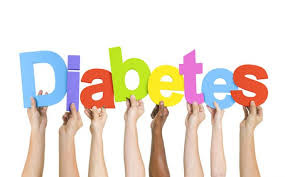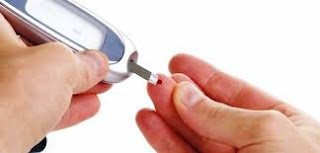Diabetes
Send this page to a friend print Facebook Twitter Google +
It is a chronic disease in which the body cannot regulate the amount of sugar in the blood.
Causes
Insulin is a hormone produced by the pancreas to control blood sugar. Diabetes can be caused by very little insulin production, insulin resistance, or both.
To understand diabetes, it is important to understand first the normal process through which food is transformed and is used by the body to obtain energy. Several things happen when food is digested:
A sugar called glucose goes into the bloodstream. Glucose is a source of energy for the body.
An organ called pancreas produces insulin. The role of insulin is to transport glucose from the bloodstream to the muscle, fat, and liver cells, where it can be stored or used as a source of energy.
Release of insulin and food
People with diabetes have high levels of blood sugar because their body cannot mobilize sugar from the blood to the muscle and fat cells to burn it or store it as energy, and because the liver produces too much glucose and the secret in the blood. This is because:
The pancreas does not produce enough insulin
Cells do not respond normally to insulin
Type I Diabetes
There are two main types of diabetes. Causes and risk factors are different for each type:
Type 1 diabetes. It can occur at any age, but is most often diagnosed in children, adolescents, or young adults. In this disease, the body does not produce or produce little insulin. This is because the pancreas cells that produce insulin stop working. Daily insulin injections are needed. The exact cause is unknown.
Type 2 diabetes. It's much more common. It is usually presented in adulthood but due to high obesity rates, children and adolescents are now being diagnosed with this disease. Some people with type 2 diabetes don't know they have this disease. With type 2 diabetes, the body is insulin resistant and does not use it as effectively as it should.
There are other causes of diabetes, and some people cannot be classified as type 1 or 2.
Gestational diabetes is the high blood sugar level that occurs at any time during pregnancy in a woman who has no diabetes.
If one of your parents, siblings or sisters has diabetes, you may be more likely to have this disease.
Symptoms
A high level of blood sugar can cause a variety of symptoms, for example:
Blurred vision
Excessive thirst
Fatigue
Frequent urine
Hungry
Weight loss
Because type 2 diabetes develops slowly, some people with high blood sugar do not develop symptoms.
Symptoms of type 1 diabetes develop in a short period of time. People can be very sick by the time of diagnosis.
After many years, diabetes can lead to other serious problems. These problems are known as complications of diabetes and include:
Eye problems, such as difficulty seeing (especially at night), sensitivity to light and blindness
Ulcers and infections in the leg or foot, which do not receive treatment, may lead to amputation of the leg or foot
Damage to the nerves in the body causing pain, tingling, loss of sensation, problems digesting food and erectile dysfunction
A urinalysis may show high blood sugar levels. But a urine test just doesn't diagnose diabetes.
Your health care provider may suspect that you have diabetes if your blood sugar is greater than 200 mg/dl (11.1 mmol/L). To confirm the diagnosis, one or more of the following tests should be done.
Blood tests:
Fasting blood glucose. Diabetes is diagnosed if the fasting glucose level is greater than 126 mg/dl (7.0 mmol/L) in two different tests. The levels between 100 and 126 mg/dl (5.5 and 7.0 mmol/L) are called fasting glucose alteration or pre-diabetes. These levels are risk factors for type 2 diabetes.
Hemoglobin A1c (A1C) test. The normal is less than 5.7%, pre-diabetes is between 5.7% and 6.4%, and diabetes is 6.5% or higher.
Oral glucose tolerance test. Diabetes is diagnosed if the glucose level exceeds 200 mg/dl (11.1 mmol/L) After 2 hours of drinking a sweetened beverage (this test is most commonly used for diabetes it




















0 comentarios:
Publicar un comentario